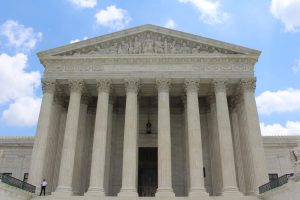Which Bankruptcy is Best For You: Best Tips to Select Your Best Option in Wisconsin
When financial difficulties become overwhelming, bankruptcy can offer a fresh start. However, choosing the right type of bankruptcy is crucial for your financial future. In Wisconsin, the primary options are Chapter 7 and Chapter 13 bankruptcy. Understanding their differences and assessing your unique circumstances is essential to make an informed decision. In this guide, we’ve explored the key aspects of both Chapter 7 and Chapter 13 bankruptcies, helping you determine which bankruptcy is best for you.
Which Bankruptcy is Best For You: Chapter 7 Bankruptcy
Advantages of Wisconsin Chapter 7 Bankruptcy:
- Complete Fresh Start: Chapter 7 bankruptcy provides a clean slate, eliminating most of your debts. After the bankruptcy discharge, you’ll be responsible only for secured assets you choose to reaffirm.
- Immediate Protection: The moment you file for Chapter 7 bankruptcy, you gain protection against creditor collection efforts and wage garnishment.
- Ownership of Earnings and Assets: Except for inheritances, the wages you earn and property you acquire after filing belong solely to you, not your creditors or the bankruptcy court.
- No Minimum Debt Requirement: There is no minimum debt amount required to file for Chapter 7 bankruptcy.
- Swift Resolution: Chapter 7 cases typically conclude within 3-6 months, allowing you to move forward with your life.
Disadvantages of Wisconsin Chapter 7 Bankruptcy:
- Loss of Non-Exempt Property: If you own non-exempt property not covered by Wisconsin bankruptcy exemptions, it may be sold by the trustee. In such cases, Chapter 7 is not an option if you wish to retain these assets.
- Temporary Foreclosure Defense: If facing foreclosure on your home, Chapter 7’s automatic stay only provides a temporary defense against foreclosure.
- Co-Signers May Still Be Liable: Co-signers of your loans can remain responsible for your debt unless they also file for bankruptcy protection.
- Eight-Year Limit: If you previously filed for Chapter 7 bankruptcy and received a discharge, you must wait eight years before filing another Chapter 7 case.
Which Bankruptcy is Best For You: Chapter 13 Bankruptcy
Advantages of Wisconsin Chapter 13 Bankruptcy:
- Asset Retention: Chapter 13 allows you to retain all your property, both exempt and non-exempt.
- Debt Reduction: While debts are not entirely canceled like in Chapter 7, Chapter 13 can reduce the amount you owe through a structured payment plan.
- Immediate Protection: Similar to Chapter 7, Chapter 13 provides immediate protection against creditor collection efforts and wage garnishment.
- Expanded Discharge Options: More debts become dischargeable under Chapter 13, including those incurred through fraud or luxury credit card charges just before filing.
- Co-Signer Protection: Co-signers are shielded from creditor efforts if your Chapter 13 plan provides full payment.
- Foreclosure Defense: Chapter 13 safeguards your home from foreclosure as long as you meet the plan’s terms.
- Extended Debt Payment: For non-dischargeable debts like taxes or back child support, Chapter 13 offers more time for repayment.
- Flexible Filing: You can file for Chapter 13 bankruptcy at any time, and it allows for multiple filings.
- Creditor Classification: Chapter 13 allows you to classify creditors into different groups, enabling varied payment percentages.
Disadvantages of Wisconsin Chapter 13 Bankruptcy:
- Payment Plan Commitment: Chapter 13 involves a payment plan that uses your post-bankruptcy income, potentially tying up your finances for the plan’s duration.
- Higher Legal Fees: Chapter 13 cases tend to be more complex, leading to higher legal fees.
- Longer Process: Your Chapter 13 plan typically lasts 3-5 years, extending your involvement with the bankruptcy court.
- Exclusion of Stockbrokers and Commodity Brokers: Stockbrokers and commodity brokers cannot file for Chapter 13 bankruptcy.
Which Bankruptcy Is Best for You?
Choosing the right bankruptcy chapter depends on your individual circumstances. Here are some general guidelines for deciding which bankruptcy is best for you:
- Chapter 7: Consider Chapter 7 if you have limited income, unsecured debts like credit cards and personal loans, and want a faster resolution without the need to hire an attorney.
- Chapter 13: Opt for Chapter 13 if you have a stable income, wish to retain your assets, and can commit to a multi-year repayment plan. You should also have the financial means to pay for an attorney.
Which Bankruptcy is Best for You: Credit Consequences of Chapter 7 vs. Chapter 13
Filing for bankruptcy, regardless of the chapter, has a negative impact on your credit. Here’s a brief overview of the credit consequences so you understand which bankruptcy is best for you:
- Chapter 7: A Chapter 7 filing stays on your credit report for up to 10 years.
- Chapter 13: Chapter 13 may remain on your credit report for up to seven years, starting only after the repayment plan is completed, which typically takes three to five years.
Lenders often view Chapter 13 more favorably than Chapter 7 since it reflects a filer’s commitment to repay debts over time. While bankruptcy can make borrowing more challenging and costly, there are steps you can take to rebuild your credit, such as using secured credit cards, having co-signers, and making on-time payments.
Contact Dahlberg Law Group for Expert Assistance on Choosing Which Bankruptcy is Best for You
In conclusion, the choice between Chapter 7 and Chapter 13 bankruptcy in Wisconsin should align with your financial situation and goals. If you need personalized guidance to select the best option, consult with experienced bankruptcy attorneys at Dahlberg Law Group. Steve Eichsteadt and his team can help you navigate the complexities of bankruptcy and choose which bankruptcy is best for you.
For step-by-step guidance and forms related to bankruptcy processes, visit Wisconsin Bankruptcy FAQs and download forms. Don’t let financial stress hold you back – contact us today to take the first step toward a debt-free future.


